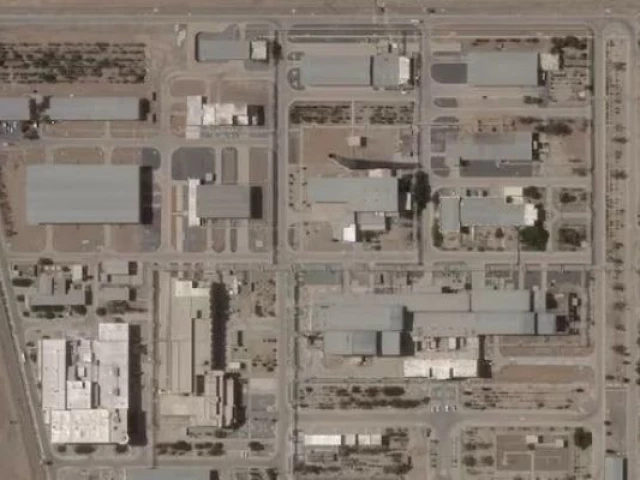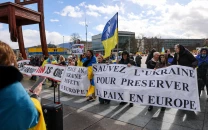Tehran accuses E3 of harming diplomacy, vows defiance against sanctions
Rubio backs E3 sanctions move, says US open to Iran talks; Tehran demands no-strike guarantee before engaging

Britain, France and Germany on Thursday launched a 30-day process to reimpose UN sanctions on Iran over its disputed nuclear programme, a step likely to stoke tensions two months after Israel and the United States bombed Iran.
A senior Iranian official quickly accused the three European powers of harming diplomacy and vowed that Tehran would not bow to pressure over the move by the so-called “E3” to trigger the snapback mechanism.
The E3 feared they would otherwise lose the prerogative in mid-October to restore sanctions on Tehran that were lifted under a 2015 nuclear accord with world powers.
Read More: Iran envoy expelled from Australia rejects arson attack claims as 'lies'
French Foreign Minister Jean-Noel Barrot said the decision did not signal the end of diplomacy. His German counterpart Johann Wadephul urged Iran to cooperate fully with the U.N. nuclear watchdog and commit to direct talks with the United States over the next month.
Iran dismissed the move as “illegal and regrettable” but said diplomacy with Europe would continue.
The UN Security Council is due to meet behind closed doors on Friday at the request of the E3 to discuss the move, diplomats said.
The E3 acted after accusing Tehran of violating the 2015 deal that aimed to curb its nuclear weapons capability in exchange for sanctions relief. U.S. President Donald Trump withdrew Washington from the accord in 2018, calling it one-sided, and the deal has since unravelled as Iran ramped up uranium enrichment.
US Secretary of State Marco Rubio welcomed the E3’s step, saying Washington was available for direct talks with Tehran. But Iran said engagement would depend on U.S. guarantees against military strikes during negotiations.
The snapback process runs 30 days before sanctions targeting Iran’s financial, energy, and defence sectors are restored, unless blocked.
Also Read: Iran says killed 13 militants in restive southeast
Israel welcomed the move, with Foreign Minister Gideon Saar calling it an “important step” to counter Tehran’s nuclear ambitions.
Russia and China, meanwhile, circulated a draft resolution extending the 2015 nuclear deal for six months and urging a return to talks, though no vote has been requested.
The renewed sanctions threat has stirred frustration inside Iran, where leaders are divided between hardliners advocating confrontation and moderates urging diplomacy.
Iran has enriched uranium to 60% fissile purity, close to the 90% weapons grade, and held enough stock for several bombs before Israel’s June 13 strikes, according to the IAEA. While manufacturing a weapon would take more time, the agency says it cannot guarantee Iran’s programme is entirely peaceful.



















COMMENTS
Comments are moderated and generally will be posted if they are on-topic and not abusive.
For more information, please see our Comments FAQ